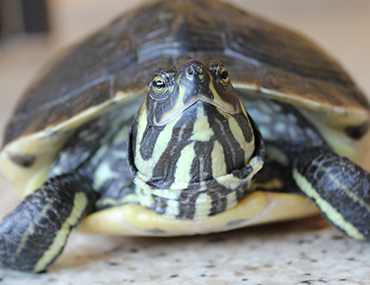Dr. Mike Paul explains discusses important considerations when choosing a pet.
Most people at one time or another think, “I want a puppy!" (or a kitten or a fish aquarium or whatever the case may be). That thought must be pretty common. Recent surveys indicate that while 5% of US households share their homes with at least one bird, and 10% have fish and 5% have pocket pets, the clear preferences among American pet owners are dogs (39%) and cats (33%.)
What goes in to deciding which pet will share your home and when? Unfortunately, that decision is all too often emotional and impulsive when it really should be the result of thought and careful consideration. Even the question of "when" should be thought out. Over the years I’ve known too many overwhelmed clients who elected to get a puppy at the same time that they were welcoming a baby into the family. Another example would be ‘Christmas pets’ that are overwhelmed themselves by being introduced into a family during the already busy and chaotic holidays. Or teenagers who just have to have their own pet right before they move off to college so that both the student and the pet have to navigate a lonely transition period. Acclimating a pet into your environment takes a substantial commitment of both time and energy. Be sure that you can do the process justice.

When the time is right, the choice of which pet is primarily personal preference; but lifestyle, available space, and the wishes of other family members should play a role. Owners of exotic pets (those species other than dogs and cats) often have a genuine fascination as a hobbyist or prior experience and/or interest owning non-traditional pets. If you are considering owning an exotic pet, the very first step is to educate yourself. Before you invest in expensive reptiles, valuable fish or even many birds, talk to your veterinarian. Far too many of these animals lead un-enriched lives and in fact merely exist in tanks and cages. They are extremely sensitive to their environment and may be weakened or even die if not properly cared for let alone should they have medical problems. And finding a veterinarian who is really an expert in treating fish or birds or exotic reptiles may be difficult depending on where you live. My advice is to avoid getting an unusual pet you are simply curious about or saw on television or want to own because they are currently trendy or cool. Leave them to the experts or, better yet, in nature.
Considerations: How to Choose a Pet
Clearly, all pets big or small, furry or not, can add a great depth of experience to life. Because dogs and cats have been domesticated for thousands of years and generally do well living with people, I will choose to focus on those two in specific in order to formulate some questions and considerations you should make when choosing a pet.
The first order of business is to decide if you want a dog or a cat or both. Neither are in short supply, so availability will not be an issue. Which do you like most? “Dog people” are more common than “cat people”. Which are you? Personally, I am a cat guy in spite of the fact that cats have an ill-deserved reputation for being aloof and not very friendly. Worse, they have historically been cursed with a bad public relations team. “Cats are unfriendly, mean, destructive, smelly, bad with children…” and similar thoughts contribute to the stereotypes about cats, none of which are inherently true. Most cats are delightful. In fact, I have often said “If someone doesn’t like cats, they have probably never lived with a cat.” Your cat provides a totally different experience than someone else’s cat.

Cats are relaxing, entertaining and lower maintenance than dogs. Their instincts and natural behaviors result in wonderful play and social behaviors that make them fun to just watch without quite as much personal effort as dogs typically demand. When provided with enrichment, activities and stimulation they are pretty much self-entertaining. You don’t often have to take them for a walk. While they still need some grooming they require less than dogs. They adapt well to being totally indoors, are very suitable to apartment life, and can be left alone for longer periods of time (I don’t want to over-argue my case but to encourage you to appreciate and respect cats).
Let’s assume, on the other hand, that you decide it is time to get a dog. Which dog? How big? Pure bred or mixed breed? What breed? How old? Should you buy from a breeder? Buy from a pet shop? Adopt from a shelter? Rescue a stray? The reality is there are millions of dogs and cats that need good homes. But is your home the right home? Do you have the space for the level of exercise this particular dog needs? Do you have the time? Do you understand the personality of and any likely medical conditions associated with your particular breed? You will share your home and your life with this pet for many years. Do yourself and your pet the service of making a good choice and finding the very best pet you can find.
In a future blog we will explore some of these issues in more detail but there is one primary caveat to all prospective pet owners. Understand that ALL pets come with a responsibility to provide proper nutrition, good medical care, enrichment or play stimulation, and a commitment of time for socialization. I want your pet to be a great pet. I want it to be healthy, well socialized and well behaved so that every day together will be a day you enjoy.
If you have any questions or concerns, you should always visit or call your veterinarian – they are your best resource to ensure the health and well-being of your pets.
